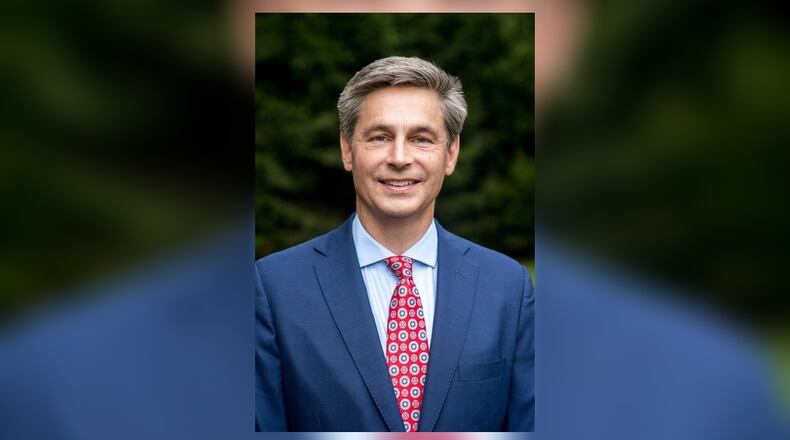According to Montgomery County Coroner Dr. Kent Harshbarger, 2021 was the second-highest overdose year in recorded history. The present crisis is being driven by the increased prevalence and potency of fentanyl, a drug approved for pain treatment, which took the lives of more than 64,000 Americans, and more than 5,000 Ohioans, from April 2020 through April 2021.
Prior to the onset of the COVID-19 pandemic, Ohio made progress in reducing overdose deaths. Yet over the past year, a new challenge has emerged which has brought an increase of lethal drugs, human trafficking, and crime onto our streets. The federal government has neglected their responsibility to keep Americans safe. According to state, local, and federal law enforcement, reckless border policies contribute to the increases of drug and human trafficking inside our state.
Today, nearly 80 percent of overdose deaths in Ohio are caused by fentanyl raw materials sourced from China. From there they are transported to Mexico and smuggled over the border by drug cartels. During the twelve-month period preceding October of last year, a record 11,201 pounds of fentanyl were seized by the U.S. Border Patrol. That quantity is enough to kill every American. A Stanford-Lancet study released this month warned that the opioid overdose death toll in the U.S. could rise to 1.2 million by 2029.
In Ohio, we have taken aggressive action to address this scourge. Governor DeWine, at the behest of fellow states, rightly deployed the Ohio National Guard and state law enforcement to back up other state and federal personnel on the southern border. The Legislature has also formally called upon the federal government to step up their efforts to secure the border and designate drug cartels as foreign terrorist organizations.
Additional actions taken by the Legislature includes increasing state penalties for drug trafficking, enhancing penalties for dealers who sell on the premises or near addiction service providers, and strengthening criminal offenses and sentences when the substance involved is a fentanyl-related compound. We have also increased state funding for local law enforcement training and equipment, appropriated record sums to child protection services, clinics and programs to combat drug abuse and addiction, and voted to authorize pharmacists to dispense or administer by injection an emergency refill of naltrexone if certain conditions are met.
Most often it’s our brave local law enforcement officers and first responders that have been forced to bear the brunt of this crisis head-on. That’s why I and my colleagues remain committed to fighting for increased support to bolster on-the-ground recovery and treatment programs to wage and win this battle. In the present legislative session, I also intend to advance HB 101 to modernize the funding formula that allocates state investments into county jail construction and renovation, to back our sheriffs and further promote public safety.
Ohio’s congressional delegation is also fighting back. This month, Reps. Warren Davidson, Bob Latta, Troy Balderson, Steve Chabot and more than 100 other members of Congress called on the Biden Administration to permanently make fentanyl a Schedule 1 drug. They have also worked tirelessly to advocate in support of completing physical, virtual and personnel barriers at the border.
The opioid crisis is a battle that is raging inside our local communities; effectively making Ohio a border state. This reality warrants the full attention and resources of local, state and federal stakeholders to save lives. The progress that is being made among local leaders and law enforcement is notable, but it will be limited in its effectiveness until the Biden Administration heeds the recommendations of Ohio’s state leaders and our congressional delegation to secure our southern border.
Matt Dolan is a Republican State Senator from Chagrin Falls.
About the Author
